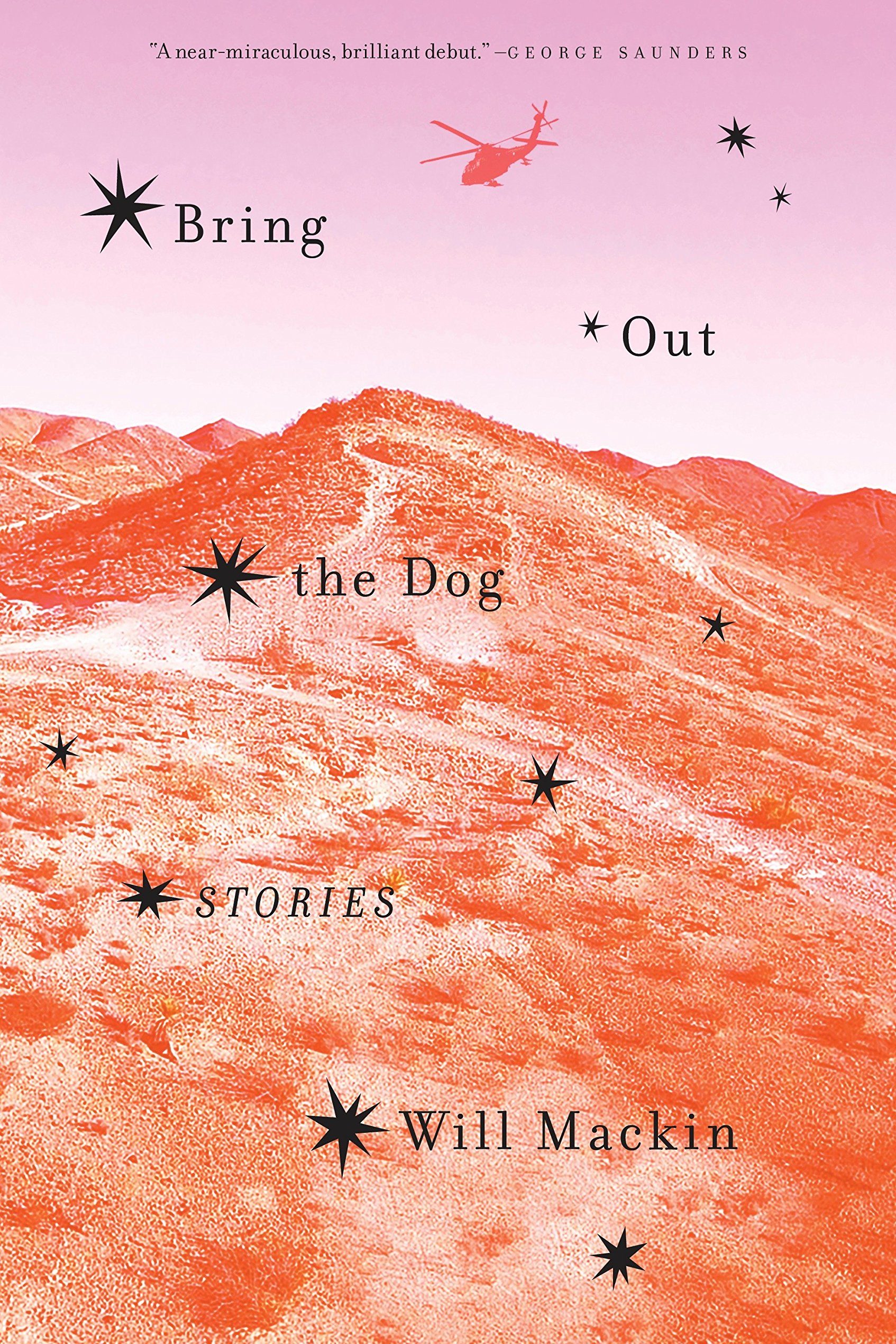Bring Out the Dog: Stories
by Will Mackin
reviewed by Erik Hage
The term “war story” often has a connotation of embellishment or exaggeration. It also suggests drama and adventure, and in that sense, Will Mackin’s short stories in Bring Out the Dog aren’t war stories at all. Mackin does not try to convert the language of war—the violence, the psychological strain, the periods of waiting and monotony—into a more self-consciously “literary” language. He does not wrench these episodes into narrative shape, and there is little buildup, climax, or sense of resolution. He does not moralize, yet he still conveys the horror and disorientation of lives caught up in war.
Mackin is a US Navy veteran who served in Iraq and Afghanistan, much of that time as a joint terminal attack controller working with a SEAL team. And there is a hard, clear surface to the events in these stories, which often come off like reporting or arc-less episodes that elude interpretation. In “Lost Troop,” the titular unit enters such a period of quiet and slowness in Afghanistan that it seems as if the war has ended; therefore, they range about—restless, aimless, dangerous—looking for a sense of purpose. In the opening lines of “Rib Night,” a fight breaks out in a military dining facility in Sharana, Afghanistan, ostensibly because someone didn’t wait their turn. But the scuffle is merely surface stress and strain, and the instigator, we find, “had killed three men in a room” early that morning. “The Fire Truck” takes place at a training range in Utah, where two men scrutinize their proposed target from a distance. They are hesitant to radio the jets to bomb a seemingly mint-condition fire truck that looks like it may have mistakenly driven out on the range.
Mackin’s stories often open up into brief, flashing moments of strangeness and wonder. “The Fire Truck” ends with a plane passing by, excruciatingly close, so that the narrator gets a glimpse of the person at the controls:
The pilot looked right at me. It was like she stood on one side of a bottomless crevasse, and I on the other. But she was weightless. I saw her eyes behind her dark visor. I saw her pencil, dummy-corded to her kneeboard, floating in mid-cockpit. I saw her French braid rising off her shoulder toward her canopy. Then she was gone, and the mountain shook in her wake.
The details—floating pencil, the exchange of glances, the French braid—combine to provide a split-second moment of humanity that is immediately swallowed up by the power of war machinery. The result is disorientation, a moment of near-beauty or human connection that remains elusive, just beyond the narrator’s grasp. Another numinous moment appears in “Crossing the River No Name”:
Electric streaks of rain fell straight down on my night vision. Cold rose from the mud into my bones. It squeezed the warmth out of my heart. My heart became a more sensitive instrument as a result, and I would feel the Taliban out there, lost in the darkness. I could feel them in the distance, losing hope.
Here, there are compelling paradoxes: the heart losing “warmth” but becoming more “sensitive,” able to “feel” more—able to connect with the humanity of the enemy. But the description renders the heart simply an “instrument” for detection, another piece of military apparatus. As a result, the reader is struck simultaneously by the human connection and the lack of it. Another of these moments appears in “Remain Over Day,” when the narrator hands an Afghan soldier a bandanna for his bloody nose:
Starlight filled Hank’s open palm … I had the odd sensation of having seen Hank’s fingers slowly close on my bandanna once before. Not only that, it seemed as though I’d been on this mountain before … Wind eased through the wildflowers. I felt each stem bend, every petal rise … I was aware of every rock, pebble, and grain of sand, and I knew how each one had come to be.
Here, both the descriptions of the natural world and the narrator’s awareness, stretching beyond human ken, toward divinity, seem at odds with the hard realities of the war patrol. But the narrator’s deep and weary cynicism arises in this story as well. Hank is one of two Afghan soldiers assigned to the American unit. “Higher had forced them on us at the beginning of the deployment,” Mackin writes, “in order to make it look like their strategy was working—i.e., the Afghans were standing up while we were standing down. Nine years into the war, however, with no end in sight, we weren’t going anywhere.”
Bring Out the Dog is a strikingly original debut, and Mackin’s predecessors, if any, are Tim O’Brien’s Going After Cacciato and Donald Barthelme’s “The Sargeant.” Yet it is almost unfair to ascribe influence here, because all three of these writers are remarkable for their uncanniness and originality. For their brilliance, as well.
Published on July 12, 2018

